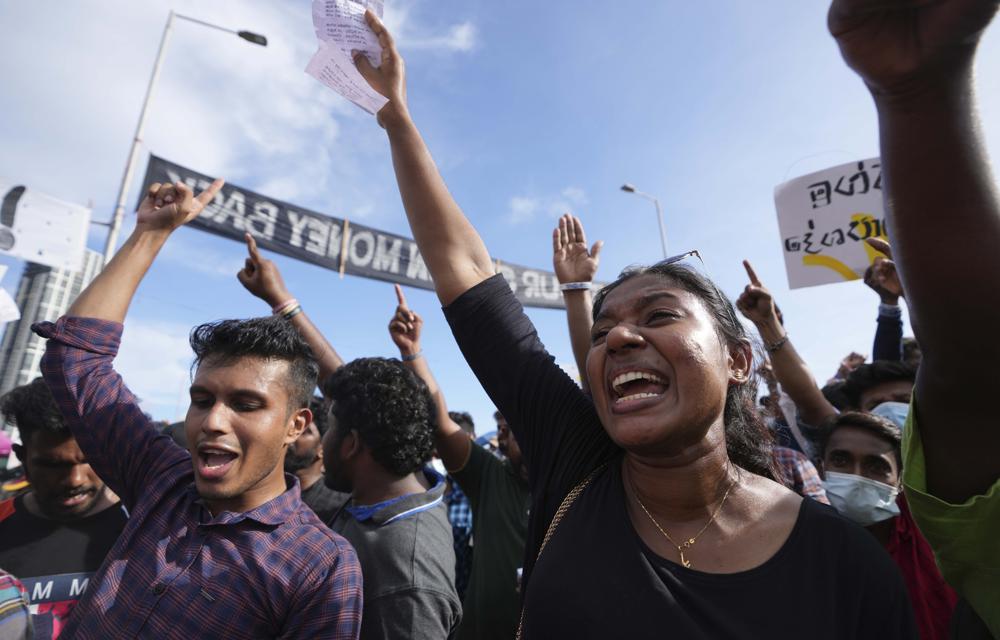

Sherry Fonseka joined millions in 2019 in electing President Gotabaya Rajapaksa, a military strategist whose brutal campaign helped end Sri Lanka’s 30-year civil war 10 years earlier.
Now he is one of thousands who, for weeks, have protested outside the president’s office, calling on Rajapaksa and his brother, Mahinda, who is prime minister, to resign for leading the country into its worst economic crisis since its independence from Britain in 1948.
With the island teetering near bankruptcy, Fonseka, who owns a small garment business in the capital, Colombo, has resorted to spending his own savings to pay the salaries of his 30 employees. But he knows he will soon have to let them go and is clear about who is to blame.
“All of us thought we made the correct decision (to elect Rajapaksa), but we’ve realized we were wrong. We should have the backbone to tell people, and the world, that we made a mistake,” he said.
In recent weeks, protests have erupted across the country demanding that Rajapaksa quit.
The protests highlight the dramatic fall of the Rajapaksas from Sri Lanka’s most powerful political dynasty in decades to a family grasping to retain power. Despite accusations of atrocities during the civil war, Gotabaya and Mahinda, who was previously president, remained heroes to many of the island’s Buddhist-Sinhalese majority and were firmly entrenched at the top of Sri Lankan politics before the revolt by previous supporters like Fonseka.
“The pendulum has swung from ‘it’s all about the Rajapaksas, they are the people who saved this country,’ to ‘it is because of the Rajapaksas that the country is now ruined,’” said Harsha de Silva, an economist and opposition lawmaker.
The unraveling of Sri Lanka’s economy has been swift and painful. Imports of everything from milk to fuel have plunged, spawning dire food shortages and rolling power cuts. People have been forced to queue for hours every day to buy essentials. Doctors have warned of a crippling shortage of life-saving drugs in hospitals, and the government has suspended payments on $7 billion in foreign debts due this year alone.
“The Rajapaksas, like an octopus, have held on to every aspect of public life in Sri Lanka,” de Silva said. “They have been running it as if it was their kingdom. They wished and they did –- that’s how it was and people were with them.”